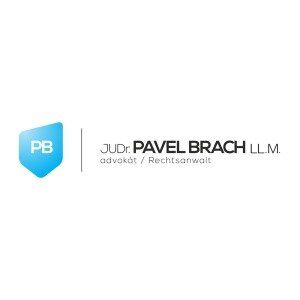Best Restructuring & Insolvency Lawyers in Czechia
Share your needs with us, get contacted by law firms.
Free. Takes 2 min.
Or refine your search by selecting a city:
List of the best lawyers in Czechia
About Restructuring & Insolvency Law in Czechia
Restructuring and insolvency law in Czechia provides a legal framework for individuals, entrepreneurs, and companies facing financial distress or unable to meet their obligations. The primary aim of these laws is to ensure the fair and orderly settlement of debts, while maximizing the value of the debtor's assets for creditors and, where possible, supporting the preservation or renewal of the business. Czech insolvency proceedings are governed mainly by Act No. 182/2006 Coll., on Insolvency and Methods of Its Resolution (the Insolvency Act), which outlines the procedures for resolving insolvency, including both liquidation and reorganization options.
Why You May Need a Lawyer
Navigating the restructuring and insolvency process can be complex and stressful. You may need a lawyer in various situations, including:
- You or your business is unable to meet financial obligations as they become due.
- A creditor is threatening to file an insolvency petition against you or your company.
- You want to attempt business restructuring or formal reorganization to avoid bankruptcy.
- You are a creditor seeking to protect your interests or recover debts in ongoing insolvency proceedings.
- You have received a formal notification of insolvency proceedings and need to know your rights and obligations.
- You are considering filing for personal insolvency to address unsustainable personal debts.
A lawyer can help you understand your legal position, guide you through procedures, represent you in court, and explore alternatives such as debt restructuring, reorganization, or out-of-court settlements.
Local Laws Overview
The main legal instrument regulating restructuring and insolvency in Czechia is the Insolvency Act. Here are several key aspects of local law:
- Definition of Insolvency: A debtor is considered insolvent if unable to meet financial obligations for more than 30 days, or if over-indebted (liabilities exceed assets for legal entities).
- Forms of Resolution: The law provides for bankruptcy (liquidation of assets), reorganization (approved restructuring plan), and debt relief (for individuals, sometimes referred to as personal bankruptcy).
- Insolvency Petition: Proceedings start with an insolvency petition, which can be filed by the debtor or a creditor. Filing is often mandatory once insolvency is recognized by the debtor.
- Moratorium and Protection: The court may grant a moratorium providing temporary protection against creditors while a restructuring plan is being developed.
- Priority of Claims: The law establishes a strict order for satisfying creditor claims, with secured creditors and certain obligations taking priority.
- Public Register: All proceedings are recorded in a public Insolvency Register, supporting transparency and preventing fraudulent transfers.
- Direct Involvement of Courts and Insolvency Administrators: Judges and court-appointed insolvency administrators play key roles overseeing proceedings and asset realization.
Complying with Czech legal requirements is crucial, as failures can lead to criminal liability or personal liability for directors.
Frequently Asked Questions
What is the difference between bankruptcy and restructuring in Czechia?
Bankruptcy involves liquidating the debtor's assets to pay off creditors, usually resulting in business closure. Restructuring (reorganization) aims to preserve the business as a going concern by implementing a court-approved plan to reorganize its debts and operations.
Can an individual file for insolvency?
Yes, individuals can file for insolvency and seek debt relief through a process known as "oddlužení" (debt relief or personal bankruptcy), which allows a gradual repayment or discharge of debts under certain conditions.
What are the consequences of insolvency proceedings?
Consequences include court control over assets, a freeze on enforcement actions, potential loss of control for business owners or managers, and public registration of the proceedings. Directors have ongoing duties and may incur liability if filing is delayed.
How long does insolvency or restructuring usually take?
The duration varies. Bankruptcy proceedings can last several months to years, depending on complexity. Restructuring is often multi-stage and can also extend over a year or more.
Can creditors initiate insolvency proceedings against a debtor?
Yes, creditors can file an insolvency petition if they have evidence of the debtor's insolvency. The court will then assess the petition and circumstances before opening proceedings.
How are creditors notified of insolvency proceedings?
Information about insolvency proceedings is published in the Insolvency Register, which is a public database. Creditors must monitor this register for updates and file their claims within specified deadlines.
What is an insolvency administrator?
An insolvency administrator is a court-appointed professional who manages the debtor's assets, oversees the distribution of proceeds to creditors, and ensures compliance with legal procedures throughout the insolvency process.
Is it possible to stop insolvency proceedings?
Insolvency proceedings can sometimes be stopped if the debtor demonstrates solvency, pays overdue debts, or reaches a formal agreement with creditors early in the process. Otherwise, the proceedings usually continue to resolution.
What are the director's duties in the event of company insolvency?
Directors are required to file for insolvency without undue delay upon recognizing insolvency. Failure to comply can result in personal liability for damages and, in some cases, criminal prosecution.
Can foreign creditors participate in Czech insolvency proceedings?
Yes, foreign creditors have the same rights to participate and file claims in Czech insolvency proceedings, subject to observing the prescribed deadlines and procedures under Czech law.
Additional Resources
Several resources, governmental bodies, and organizations may help if you need advice or support regarding restructuring and insolvency in Czechia:
- Czech Ministry of Justice (Ministerstvo spravedlnosti ČR): Provides official information about legal frameworks, including insolvency.
- Insolvency Register (Insolvenční rejstřík): The public database for all insolvency proceedings in Czechia.
- Czech Courts (particularly Regional Courts): Responsible for oversight of insolvency cases.
- Czech Bar Association: Directory of qualified lawyers specializing in insolvency and restructuring law.
- Self-Governing Chamber of Insolvency Administrators: Oversight and support body for insolvency professionals.
- Debt Advice and Counselling Centres: NGOs and local authorities operate free or subsidized counseling services for individuals in financial difficulty.
Next Steps
If you or your business is facing potential insolvency or you are a creditor seeking to recover debts, it is important to act quickly and seek professional advice. Here is how you can proceed:
- Gather all relevant financial documents, contracts, and correspondence related to your situation.
- Consult with a qualified Czech lawyer who specializes in restructuring and insolvency law to assess your options.
- Monitor the Insolvency Register for any filings related to your business or debtors.
- If you are a director, ensure compliance with all statutory duties and deadlines to avoid personal liability.
- Take timely action to file your claims or defense, as legal deadlines are often strict and missing them can limit your rights.
- Utilize available resources such as governmental advice centers or lawyer referral services if you are unsure where to start.
Legal guidance is invaluable in navigating Czech insolvency and restructuring procedures, helping you protect your rights and make informed decisions during a challenging time.
Lawzana helps you find the best lawyers and law firms in Czechia through a curated and pre-screened list of qualified legal professionals. Our platform offers rankings and detailed profiles of attorneys and law firms, allowing you to compare based on practice areas, including Restructuring & Insolvency, experience, and client feedback.
Each profile includes a description of the firm's areas of practice, client reviews, team members and partners, year of establishment, spoken languages, office locations, contact information, social media presence, and any published articles or resources. Most firms on our platform speak English and are experienced in both local and international legal matters.
Get a quote from top-rated law firms in Czechia — quickly, securely, and without unnecessary hassle.
Disclaimer:
The information provided on this page is for general informational purposes only and does not constitute legal advice. While we strive to ensure the accuracy and relevance of the content, legal information may change over time, and interpretations of the law can vary. You should always consult with a qualified legal professional for advice specific to your situation.
We disclaim all liability for actions taken or not taken based on the content of this page. If you believe any information is incorrect or outdated, please contact us, and we will review and update it where appropriate.
Browse restructuring & insolvency law firms by city in Czechia
Refine your search by selecting a city.










